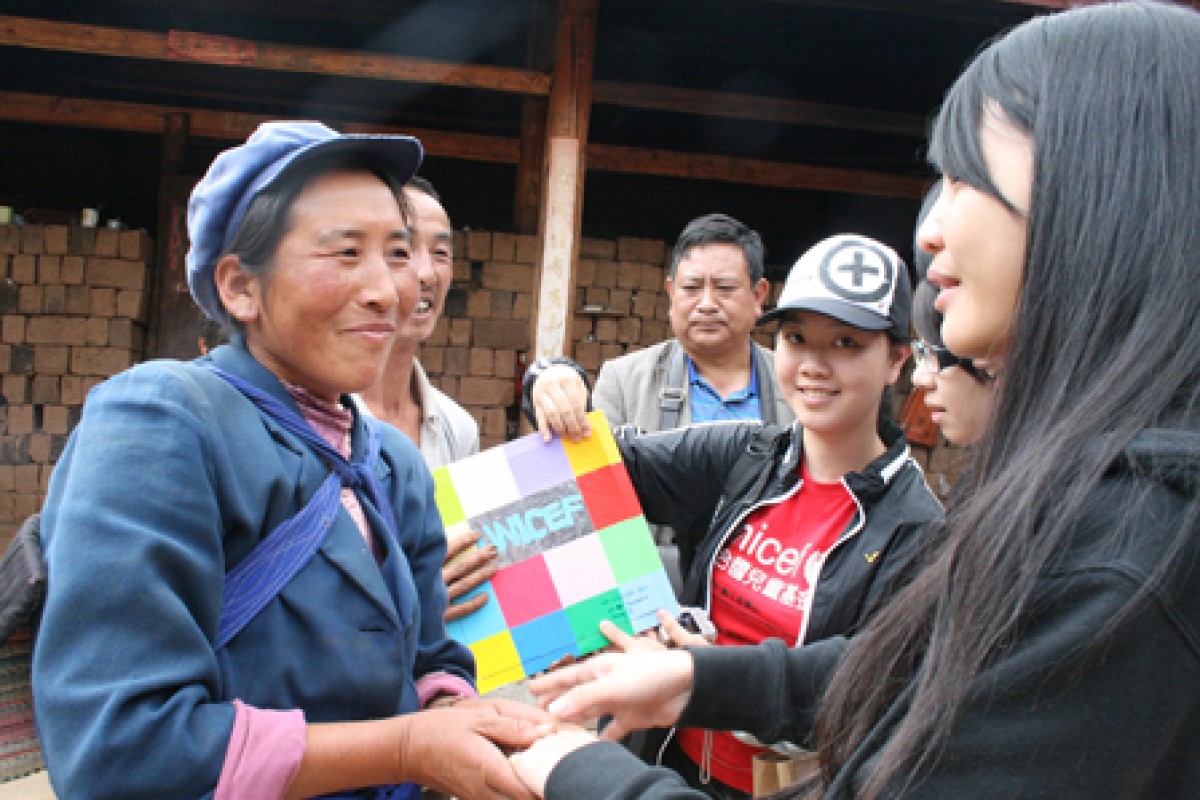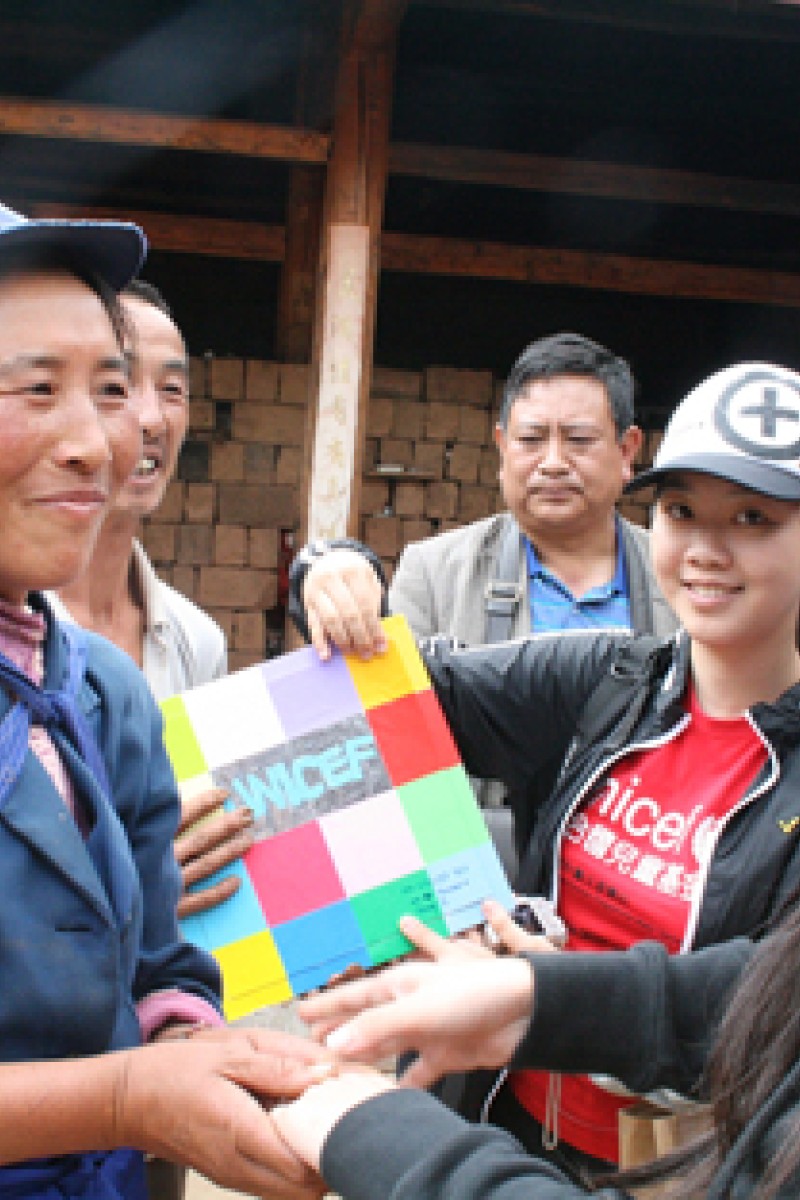 Unicef's young envoys in Yunnan presenting a gift to Wu Shenghua, who has cancer
Unicef's young envoys in Yunnan presenting a gift to Wu Shenghua, who has cancerHong Kong ranks as one of the world's healthiest places; an average resident lives for 82 years, seven more than on the mainland. Its medical system is backed by well-trained doctors and advanced technology.
But in Yunnan, ethnic minorities don't get the same kind of medical care.
This summer, 17 Hong Kong students visited Yulong Liminglisuzuxiang Hospital in northwestern Yunnan as part of Unicef's Young Envoys Programme. The hospital offers services for 15,000 people from seven villages. It provides surgeries, Chinese medicine and some medical tests such as x-rays and urinalysis. But there are no beds.
There is also a staffing shortage. Since Wang Lirong became the hospital's chief in 2009, his team has dwindled to 12 members, from 14. The facility is staffed by five doctors, a nurse and six assistants.
"We need a team double the size - at least 28 people - to meet international standards," he says.
Wang says the more far-flung and basic hospitals are, the smaller the workforce. His hospital has tried to recruit more staff, but without success.
"Fresh medical school graduates are not willing to work in impoverished areas," Wang says. "The job is tough and poorly paid. There are also fewer opportunities for learning and career advancement."
They prefer the city, where doctors are better paid. Guangzhou and Beijing are more attractive, even though the competition is more fierce and it takes five years to obtain a permanent contract. Wang is among the few who want to stay. "If everyone goes to work in the city, who will take care of the poor?" Wang says.
Wu Shenghua, from Nanyao village, has breast and uterus cancer.
She has had six chemotherapy treatments and four surgeries since 1994, but these could not remove all of the cancerous cells.
Her family of four needed more than 30,000 yuan (HK$37,000), on top of a government subsidy, to pay for the surgery and the medication. A typical household's annual income is only 4,000 yuan. The family had to sell everything and borrow money from relatives. Wu's 17-year-old son quit school to work.
Wu didn't know what cancer was until she fell ill. Doctors who came to her village to offer check-ups in 2009 brought only basic equipment, such as blood pressure meters. They didn't educate villagers about health problems.
Wu's story reminds Avis Chan Wing-hang that health is the most important thing. The 14-year-old Diocesan Girls' School student thinks health education should be strengthened.
"Villagers are ignorant about common diseases," Avis says. "It may delay a correct diagnosis and treatment until it is too late."
Winky Lai Wing-kei, 18, from Marymount Secondary School, hopes medical services will improve for everyone on the mainland.
"Patients who suffer from severe illnesses have to go to the city hospital in Lijiang, a 31/2-hour drive away," Winky says.
"If this happens in Hong Kong, I can imagine many people complaining."
